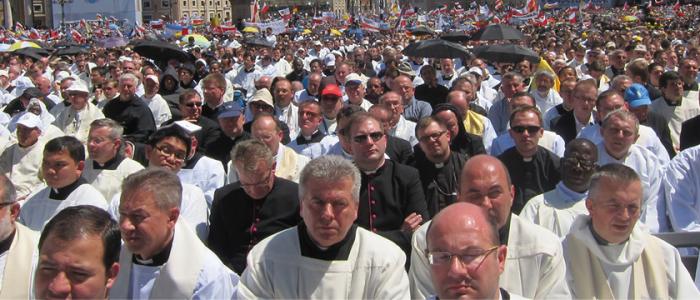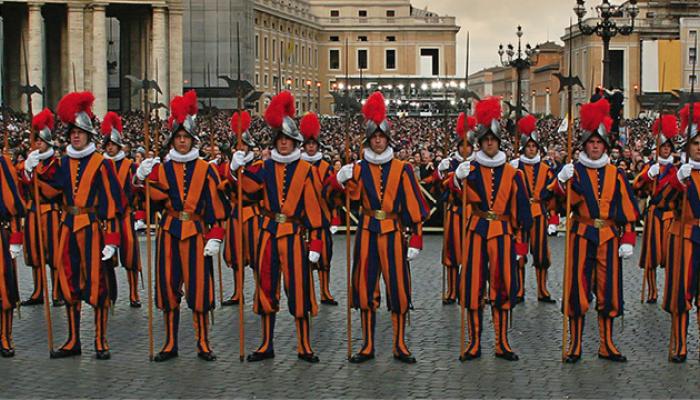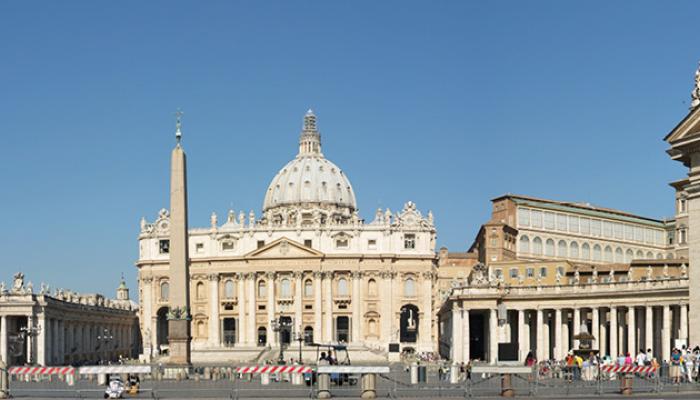
2.1 Was ist die Kirche? Wer gehört zur Kirche?
Jesus selbst hat die Kirche gegründet. Es ist die Gemeinschaft von Menschen, die Jesus nachfolgen wollen, um heilig zu werden und mit ihm für immer im Himmel zu leben . Der Apostel Paulus nannte die Kirche den „Leib Christi“: Jesus ist sein Haupt und alle anderen Mitglieder haben ihren eigenen Platz in diesem Leib. So wie wir alle unsere Körperteile brauchen, sind alle Mitglieder der Kirche für die gesamte Kirche wichtig.
Die Gläubigen können in drei große „Gruppen“ unterteilt werden, von denen jede ihre spezifische Berufung innerhalb der Kirche hat:
a) Gläubige Laien
b) geweihte religiöse
c) Diakone, Priester und Bischöfe
What is the origin and the fulfillment of the Church?
The Church finds her origin and fulfillment in the eternal plan of God. She was prepared for in the Old Covenant with the election of Israel, the sign of the future gathering of all the nations. Founded by the words and actions of Jesus Christ, fulfilled by his redeeming death and Resurrection, the Church has been manifested as the mystery of salvation by the outpouring of the Holy Spirit at Pentecost. She will be perfected in the glory of heaven as the assembly of all the redeemed of the earth. [CCCC 149]
What is the task of the Church?
The Church’s task is to make the kingdom of God, which has already begun with Jesus, germinate and grow in all nations.
Wherever Jesus went, heaven touched earth: the kingdom of God was inaugurated, a kingdom of peace and justice. The Church serves this kingdom of God. She is not an end in herself. She must carry on what Jesus started. She should act as Jesus would act. She continues the sacred signs of Jesus (the sacraments). She hands on Jesus’ words. That is why the Church, for all her weakness, is a formidable bit of heaven on earth. [Youcat 123]
The Spirit leads the company of believers to "form a community," to be the Church... One of the central purposes of mission is to bring people together in hearing the Gospel, in fraternal communion, in prayer and in the Eucharist. To live in "fraternal communion" (koinonia) means to be "of one heart and soul" (Acts 4:32), establishing fellowship from every point of view: human, spiritual and material. [Pope John Paul II, Redemptoris Missio, n. 26]





